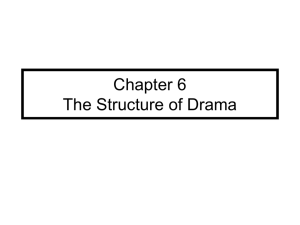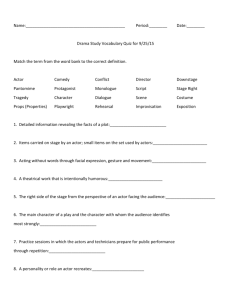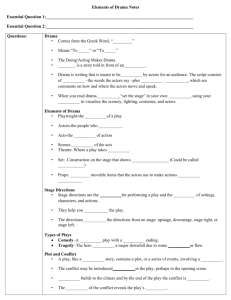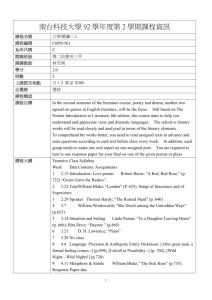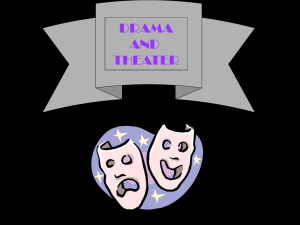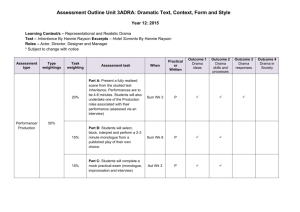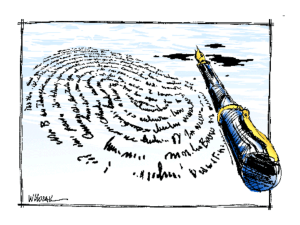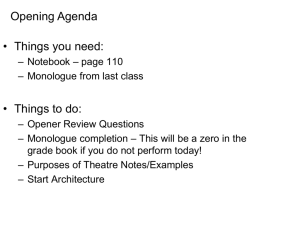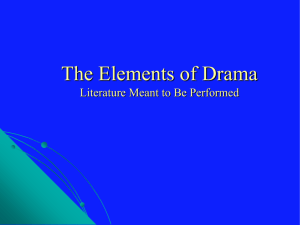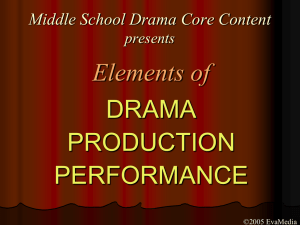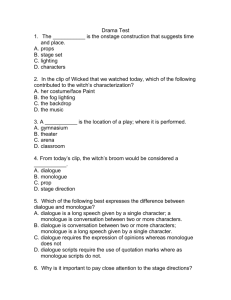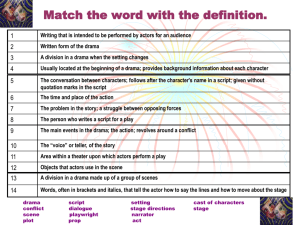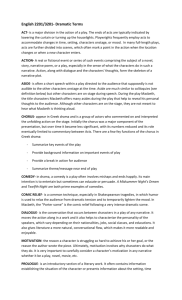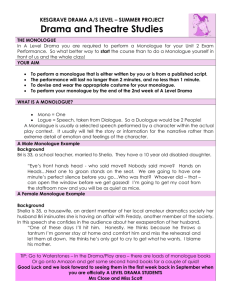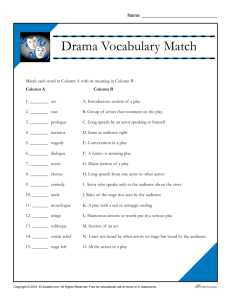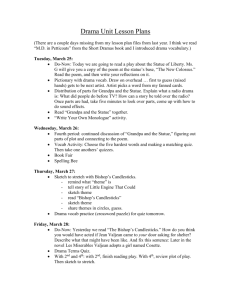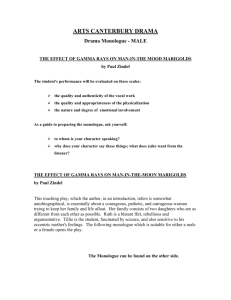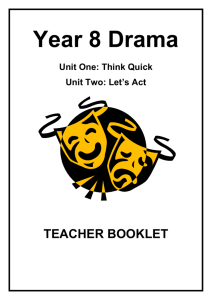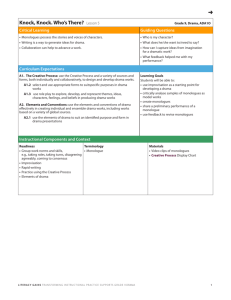Drama 9 Terms
advertisement
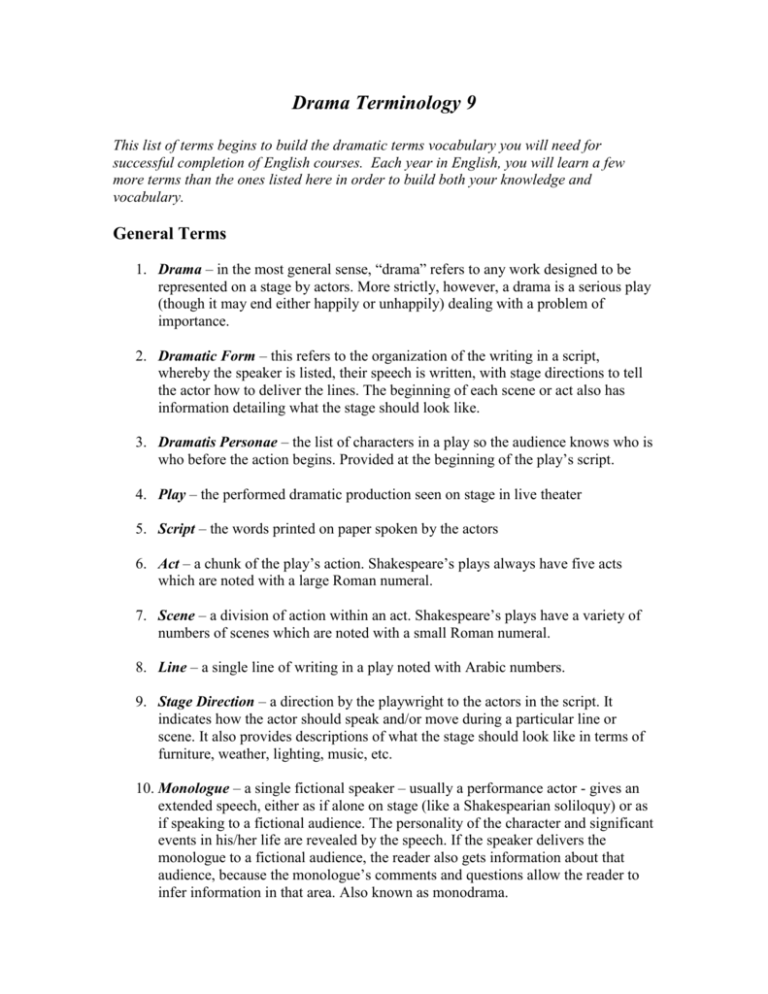
Drama Terminology 9 This list of terms begins to build the dramatic terms vocabulary you will need for successful completion of English courses. Each year in English, you will learn a few more terms than the ones listed here in order to build both your knowledge and vocabulary. General Terms 1. Drama – in the most general sense, “drama” refers to any work designed to be represented on a stage by actors. More strictly, however, a drama is a serious play (though it may end either happily or unhappily) dealing with a problem of importance. 2. Dramatic Form – this refers to the organization of the writing in a script, whereby the speaker is listed, their speech is written, with stage directions to tell the actor how to deliver the lines. The beginning of each scene or act also has information detailing what the stage should look like. 3. Dramatis Personae – the list of characters in a play so the audience knows who is who before the action begins. Provided at the beginning of the play’s script. 4. Play – the performed dramatic production seen on stage in live theater 5. Script – the words printed on paper spoken by the actors 6. Act – a chunk of the play’s action. Shakespeare’s plays always have five acts which are noted with a large Roman numeral. 7. Scene – a division of action within an act. Shakespeare’s plays have a variety of numbers of scenes which are noted with a small Roman numeral. 8. Line – a single line of writing in a play noted with Arabic numbers. 9. Stage Direction – a direction by the playwright to the actors in the script. It indicates how the actor should speak and/or move during a particular line or scene. It also provides descriptions of what the stage should look like in terms of furniture, weather, lighting, music, etc. 10. Monologue – a single fictional speaker – usually a performance actor - gives an extended speech, either as if alone on stage (like a Shakespearian soliloquy) or as if speaking to a fictional audience. The personality of the character and significant events in his/her life are revealed by the speech. If the speaker delivers the monologue to a fictional audience, the reader also gets information about that audience, because the monologue’s comments and questions allow the reader to infer information in that area. Also known as monodrama. 11. Dialogue – when two or more speakers speak to one another; the spoken exchanges that comprise a play. Terms Derived From Studies of Shakespeare 12. Aside – when a character says something privately to another character while other characters are also on stage. The line(s) are meant for one character’s ears alone. Sometimes asides are addressed to the audience. 13. Pun – this is a play on words in which a word or phrase can be taken to mean more than one thing. 14. Soliloquy – when a character speaks his/her true thoughts and feelings while alone on stage. Soliloquies reveal the character’s real thoughts on a subject. Terms Derived From Studies of Greek Drama 15. Comedy – any literary work, but especially a play, that commonly has a happy ending. Modern comedies tend to be funny, while Shakespearean comedies simply end well. Comedies often end in marriage(s). A Midsummer Night’s Dream is a comedy.
